Eden Hall Campus
Building a more sustainable and healthy world.
Nestled on 388 acres of rolling woodlands and fields in Richland Township, PA, you will find the world’s first university campus designed to be a showcase for sustainable solutions. With the campus serving as an educational canvas, faculty, students, and the public engage in a collaborative, hands-on approach to learning to develop tomorrow’s leaders in sustainability.
Built from "below the ground up," Eden Hall is an experiential campus that immerses today’s students, children, families, communities and life-long learners in the possibilities of tomorrow. It is a vital, interdisciplinary laboratory designed to support collaboration between leaders and learners, academia and business, and the arts and sciences. Here we develop scalable tools and ideas that will drive data-based decision making across the social, economic, and environmental issues we will all face together, and implement them when applicable to not only exhibit their potential, but also serve as an inspiration for the community.
“Eden Hall is designed to reach a vast set of audiences, to interface with the community, and to bring people to this place. I think that’s part of what makes it such a dynamic environment.”
Recognized as one of the greenest colleges in the country, Chatham has been rewarded for our University-wide commitments and efforts, including our use of solar energy for over a decade. Learn about how solar power lights the days and nights of our Eden Hall Campus community.
Eden Hall is an academic community dedicated to sustainable living and the modeling of sustainable approaches to energy, water, food and agriculture, air quality and climate, and the interaction of natural and built systems.
Eden Hall Campus is home to the Falk School of Sustainability & Environment at Chatham University. It's the embodiment of a commitment Chatham makes every day to support sustainability and environmental education.

Over 400 large solar panels generate 126,000 kilowatt hours annually, enough to power 14 homes for a year. Energy that does not get used feeds back into the public electric grid, and Chatham gets an energy credit for the future. Also, each building is monitored to determine energy consumption to see what works and what doesn't in the course of day-to-day activities.

Stormwater is managed by five rain gardens that collect and direct water flow to gravel walkways that make it easier for rainwater to reach the soil below, and a rainwater harvesting system that gathers and cleans the water and then uses it for crop irrigation. Eden Hall also treats wastewater onsite through a six-step process that mimics nature. The system can handle up to 6,000 gallons each day.

A working agricultural classroom, Eden Hall allows students to explore critical relationships between food, land, the environment, access, and culture. Encompassing a fully certified organic farm, demonstration garden, and greenhouses (one heated year around by solar-thermal panels), faculty and students demonstrate different sustainable agricultural practices, produce food for the campus, and practice food cultivation and marketing.

Eden Hall's weather station collects data on solar radiation, air temperature, precipitation, wind speed and direction, and leaf wetness. Soil sensors are installed nearby to collect data on items like volumetric water content and electrical conductivity.

Eden Hall functions as a demonstration site, modeling a variety of building standards, energy management techniques, and new ways of sustainable living. Buildings are constructed to meet LEED (Leadership in Environmental and Energy Design) Platinum certification, and some future buildings are planned to be built to Living Building Challenge standards.
Spanning 23,000 square feet and two floors, the Esther Barazzone Center is a multipurpose space. It includes flexible meeting and gathering spaces, an innovative commercial and teaching kitchen that uses ultra-efficient inductive heating, the campus monitoring system, and a root vegetable cellar.
Located at the center of campus, the Esther Barazzone Center offers great indoor and outdoor meeting spaces for dining, classes, research, and recreation.
Eden Hall Campus lets you see how and where food is grown, and the Barazzone Center's open commercial and teaching kitchen lets you see how our healthy, locally-sourced fare is prepared.
With seating for over 100 people, the dining room features wall-to-wall windows for natural light, easy access to EBC patios, and a large stage with a 30' LED screen for broadcasts and presentations.
The Barazzone Center was built for versatility, with aspects like the steps and green wall serving as a perfect place for an impromptu meeting, lecture, presentation, or performance.
The Barazzone Center features various class and meeting rooms, all outfitted with technology to run courses, lectures, presentations, telemeetings, and videoconferences effectively.
The field lab, located between the Esther Barazzone Center and the campus's 240-panel solar canopy, houses an aquaculture lab, a technology-packed classroom, and Eden Hall's wastewater monitoring center.
The classroom in the Field Lab is the home base for learning. Typical course lectures can be conducted in the space, along with the analysis of field research conducted at outside locations.
The Field Lab is also home to our aquaculture lab, with three connected tanks used to grow and study fish. The lab's three tanks, each about five feet tall and 500 gallons, can hold hundreds of fish at a time. Waste from the fish is used as a fertilizer in our solar high tunnel.
The Aquaculture Lab is used for research, a variety of undergraduate and graduate courses, and for K-12 programming like aquaponics workshops for students and educators.
Renamed in honor of alumna Anne Mallinson '61, the former Dairy Barn Café overlooks the Willis Amphitheater and serves as a smaller space meeting place for students and faculty. The café is built inside Eden Hall Farm's old dairy barn. A ceramic and insulating skin has been hung over the exterior to protect it from the weather and help insulate it.
The Café is built inside Eden Hall Farm's old dairy barn. Much of the original structure has been maintained, although during renovation the barn was given a new foundation and moved not far from its original location. The Café's heritage is represented by silhouettes of cows painted on the floor.
An original structure at Eden Hall Campus, the barn is capable of hosting receptions, concerts, plays, and other public gatherings.
An original structure at Eden Hall Campus, the barn is capable of hosting receptions, concerts, plays, and other public gatherings.
An original structure at Eden Hall Campus, the barn is capable of hosting receptions, concerts, plays, and other public gatherings.
The growing season extends in the High Tunnel, where the natural greenhouse effect is used in conjunction with irrigation, aquaculture, and ventilation technologies for students to learn how to get the most of out of various crops.
The solar high tunnel is heated by our solar thermal system, and allows us to grow vegetables all year long–without the need to burn fossil fuels for heating. The walls can be automatically lowered or raised to regulate temperature.
The solar high tunnel is heated by our solar thermal system, and allows us to grow vegetables all year long–without the need to burn fossil fuels for heating. The walls can be automatically lowered or raised to regulate temperature.
Hoop houses are the low-tech versions of high tunnels, but utilize greenhouse effect just the same. Hoop houses can extend crop seasons, thus providing more food from the same number of (or fewer) plants.
Orchard Hall uses the latest green advancements to make the living experience as sustainable as what is taught in the classrooms.
Orchard Hall was designed and developed to LEED Platinum standards.
Mueller House was built by Sebastian Mueller, German immigrant, cousin and colleague of H.J. Heinz, and founder of Eden Hall. He opened it to women who worked at the Heinz Company as a place of relaxation and renewal, even running a shuttle for them between Eden Hall and downtown Pittsburgh.
Eden Hall's historic Lodge is the administrative center of the Campus, with faculty offices and spaces for students to meet and study. With a decidedly retro feel, it has an old bowling alley in the basement and a swimming pool outside.
The Hilda M. Willis Amphitheater is a unique performance space at Eden Hall Campus that provides a scenic and relaxed setting for campus and community events.
Carved into the natural landscape, the amphitheater offers pastoral southern views overlooking the adjacent orchard, field, and the rolling terrain of the North Hills.


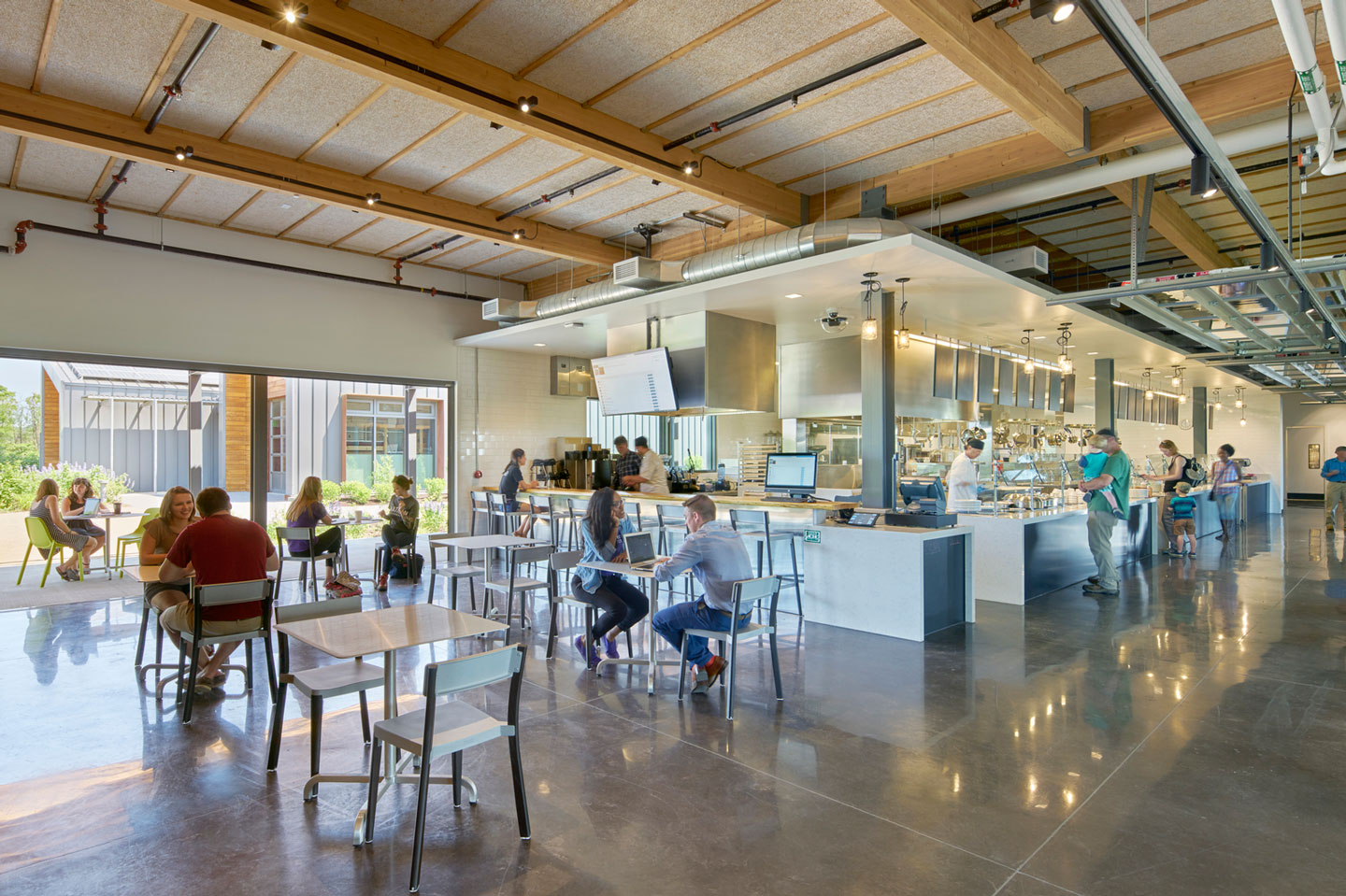

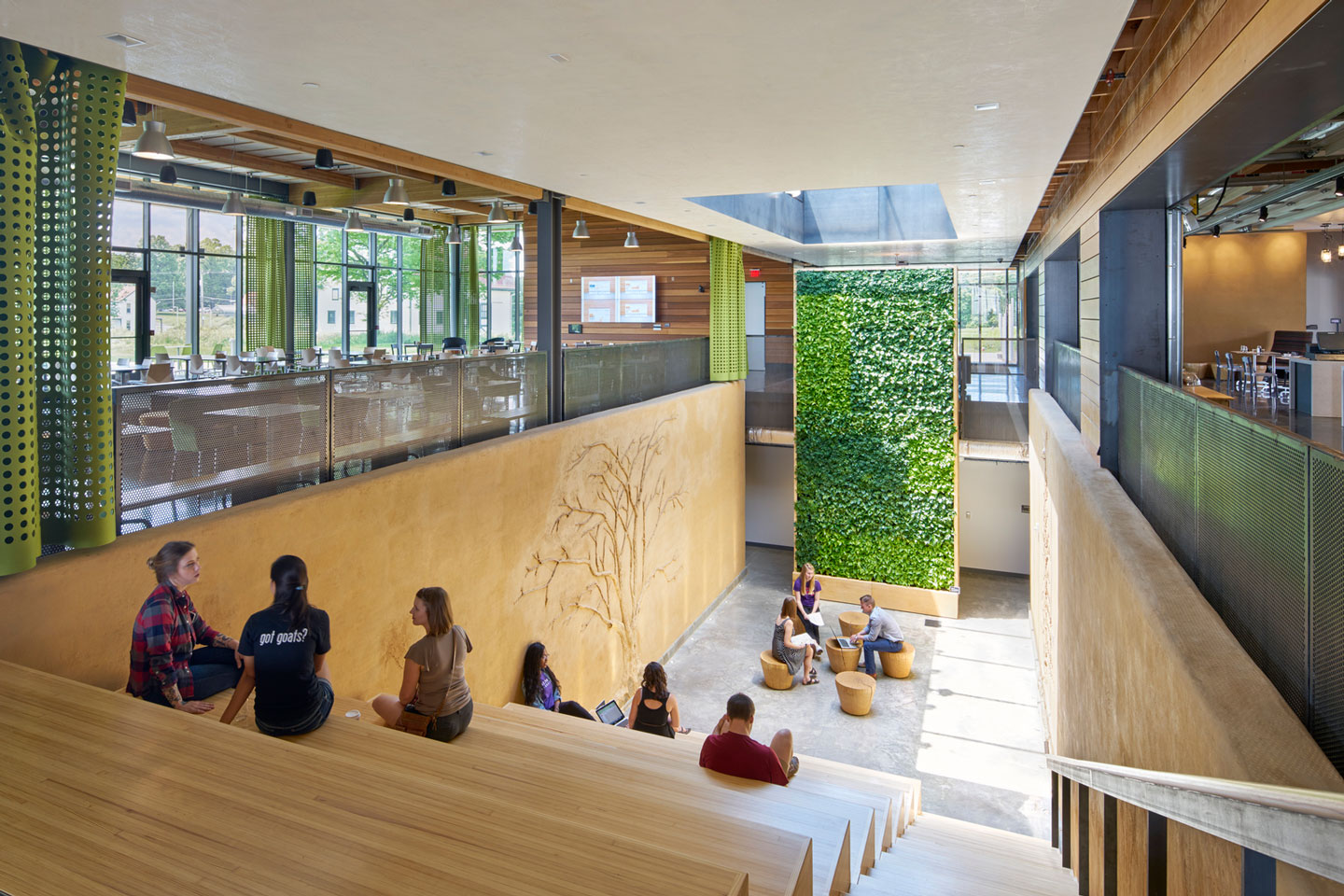
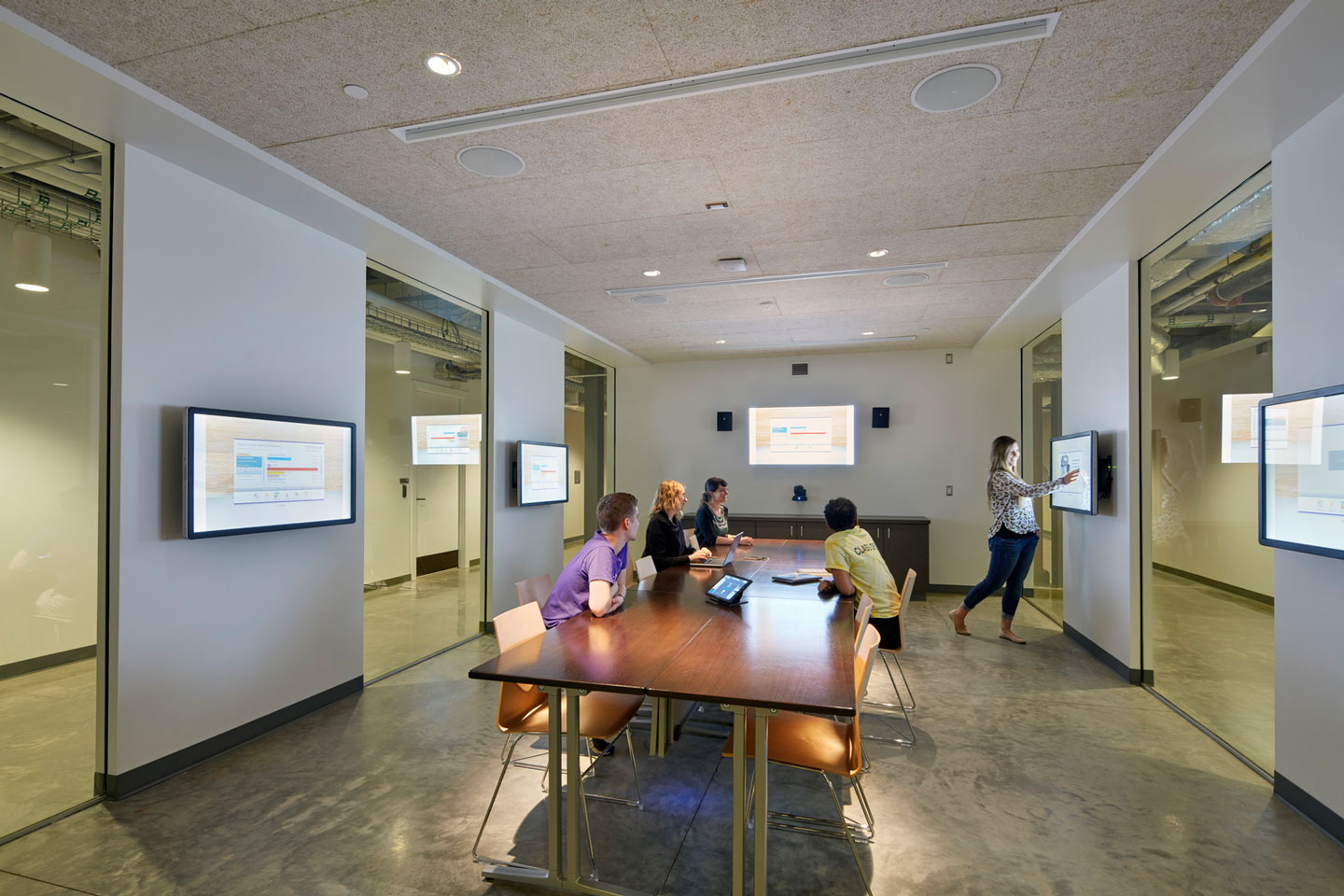

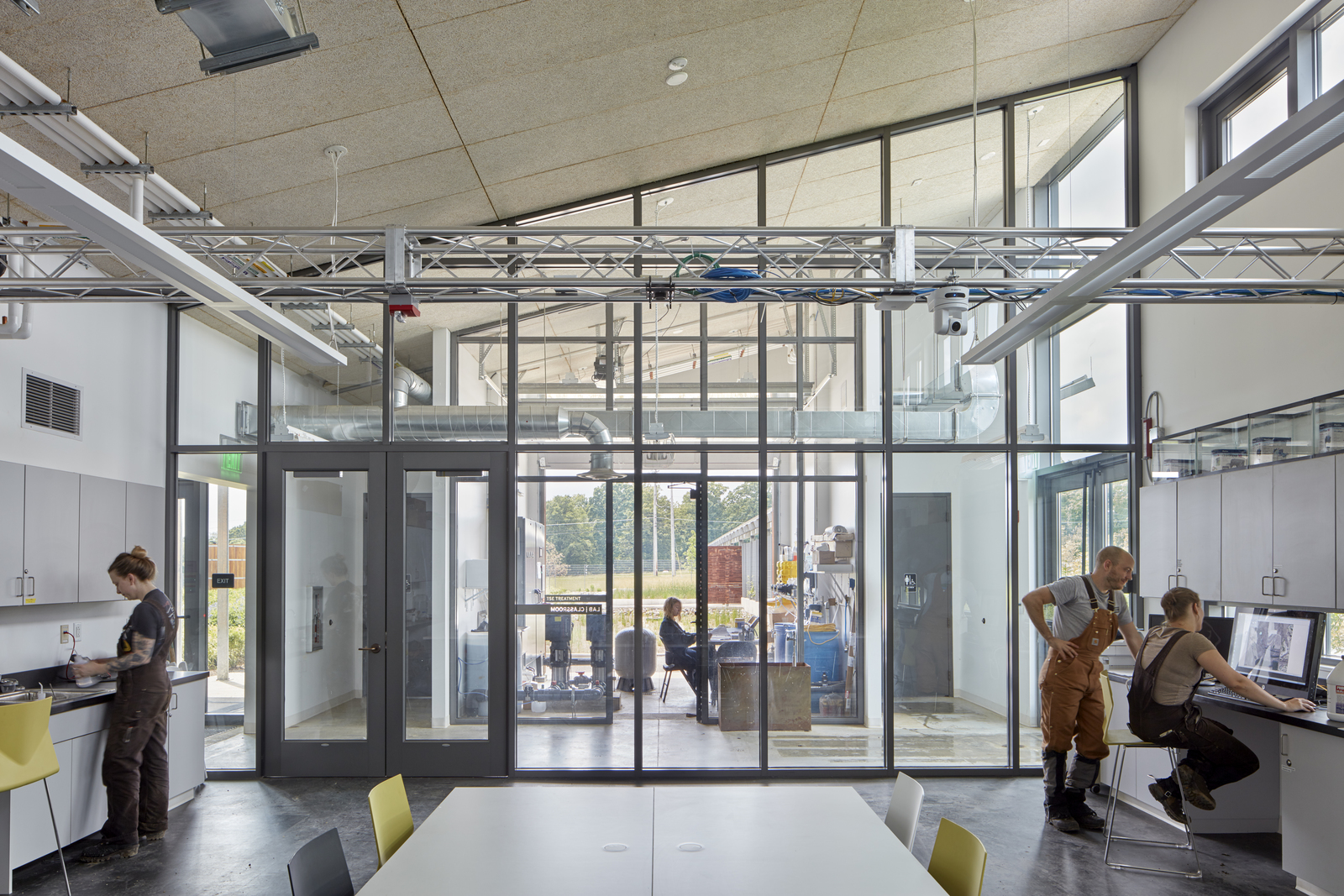

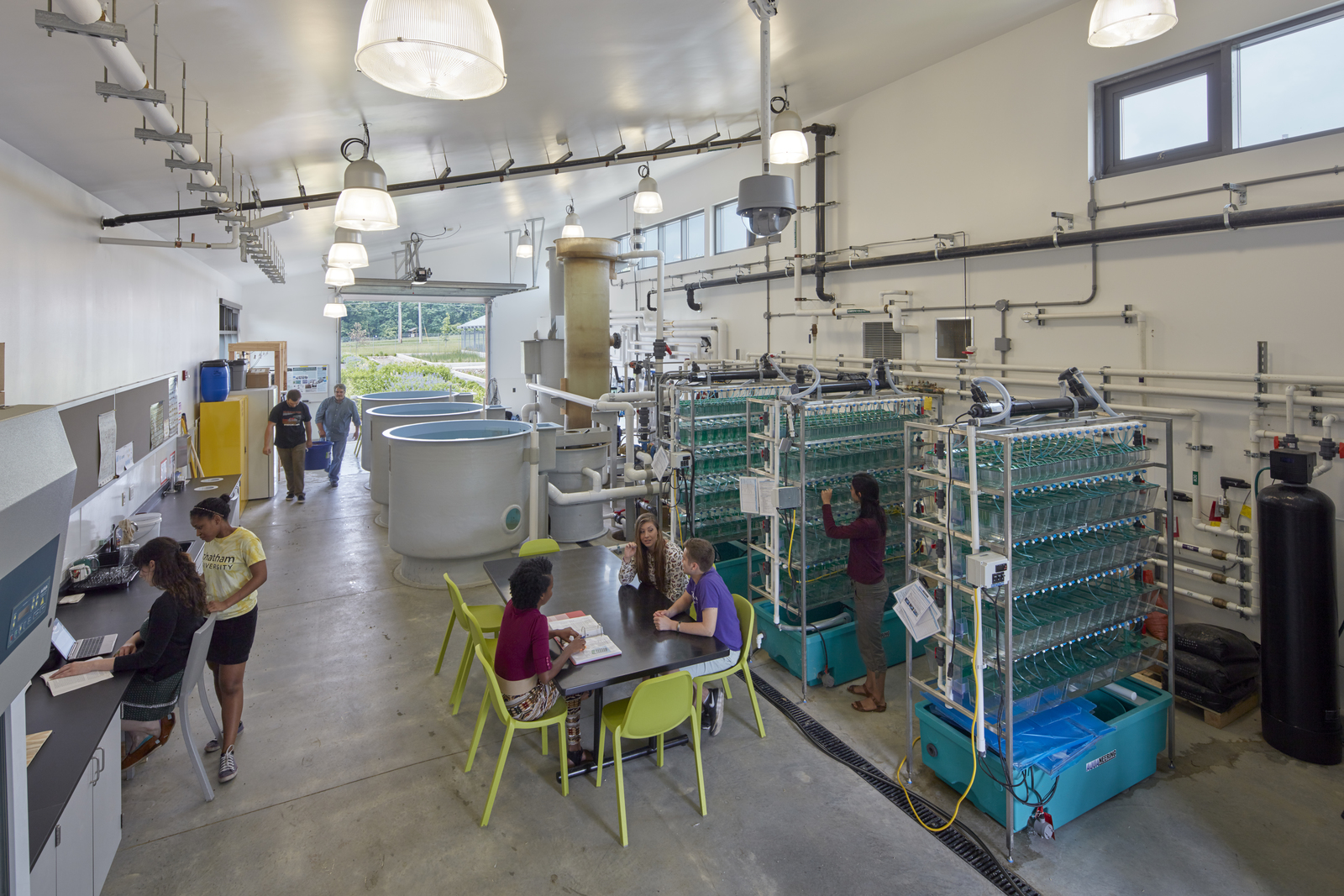


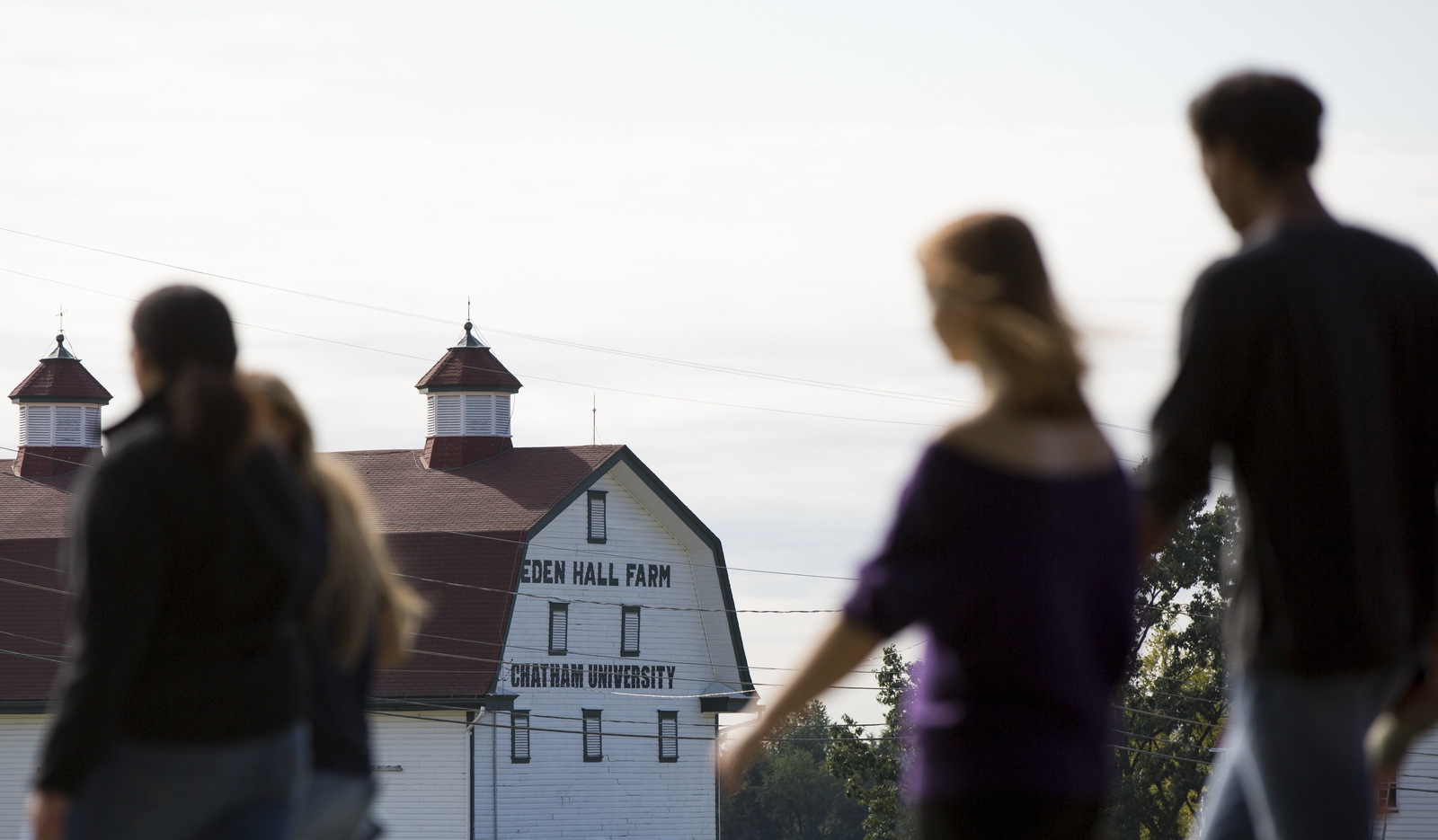
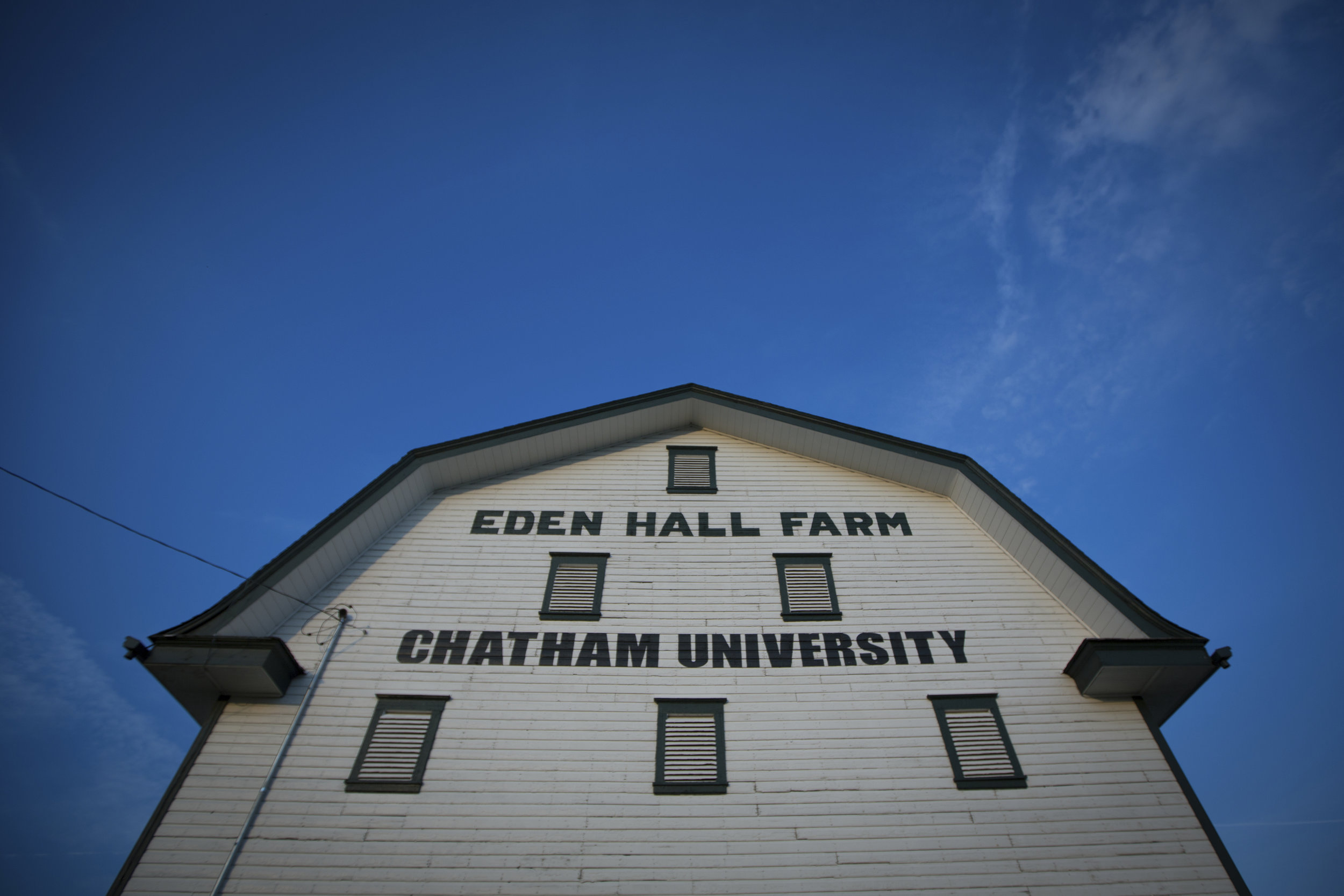
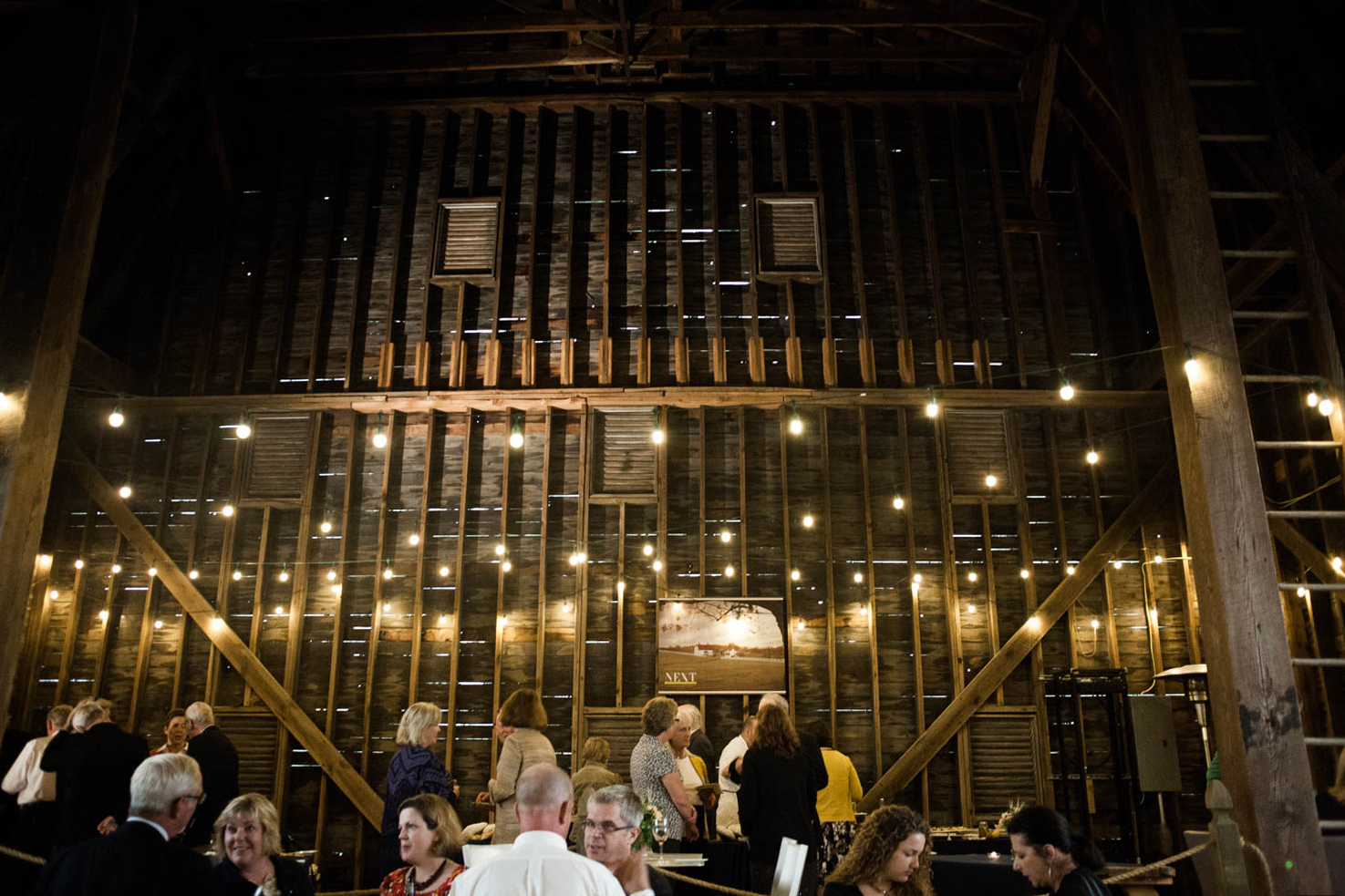


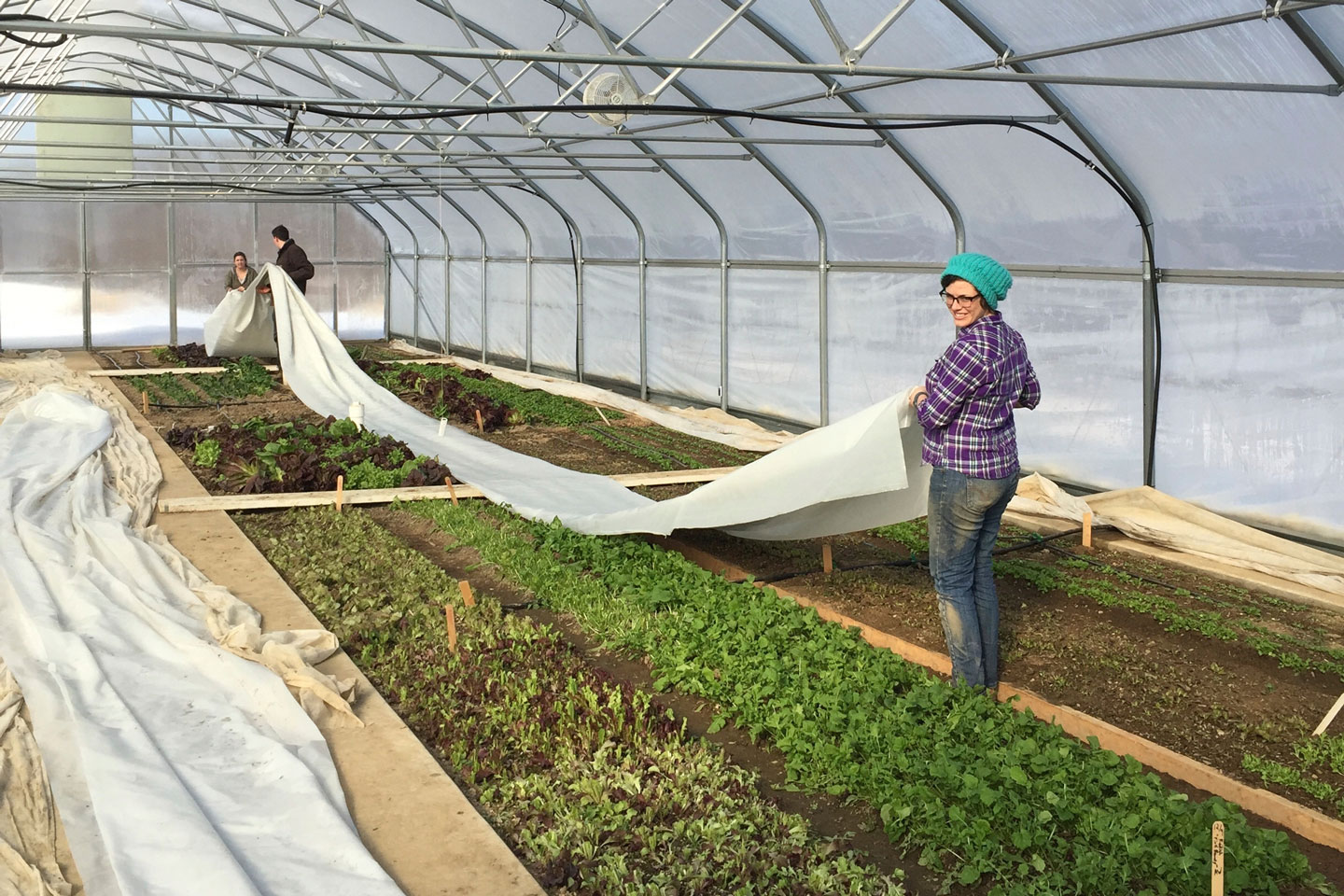
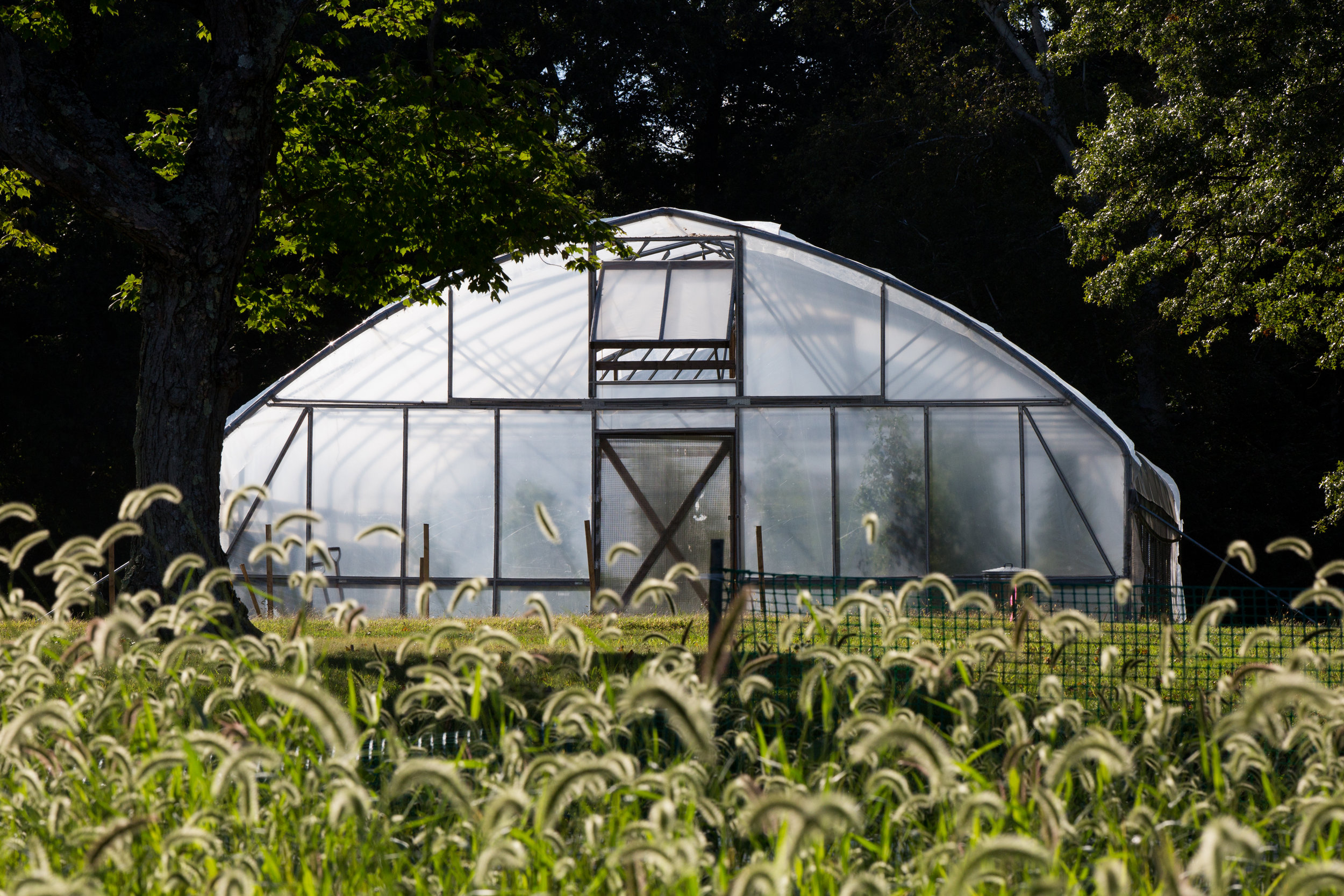
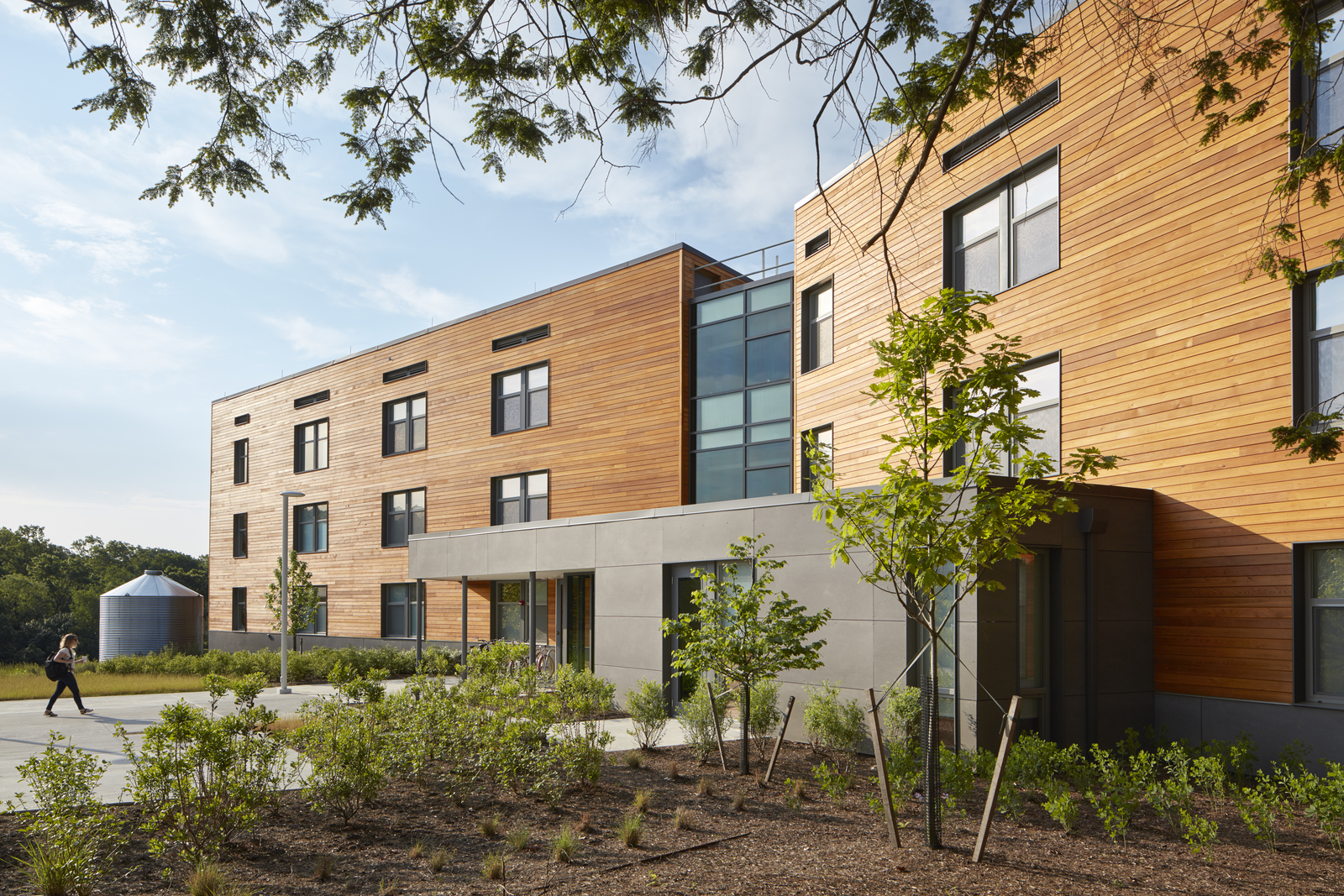
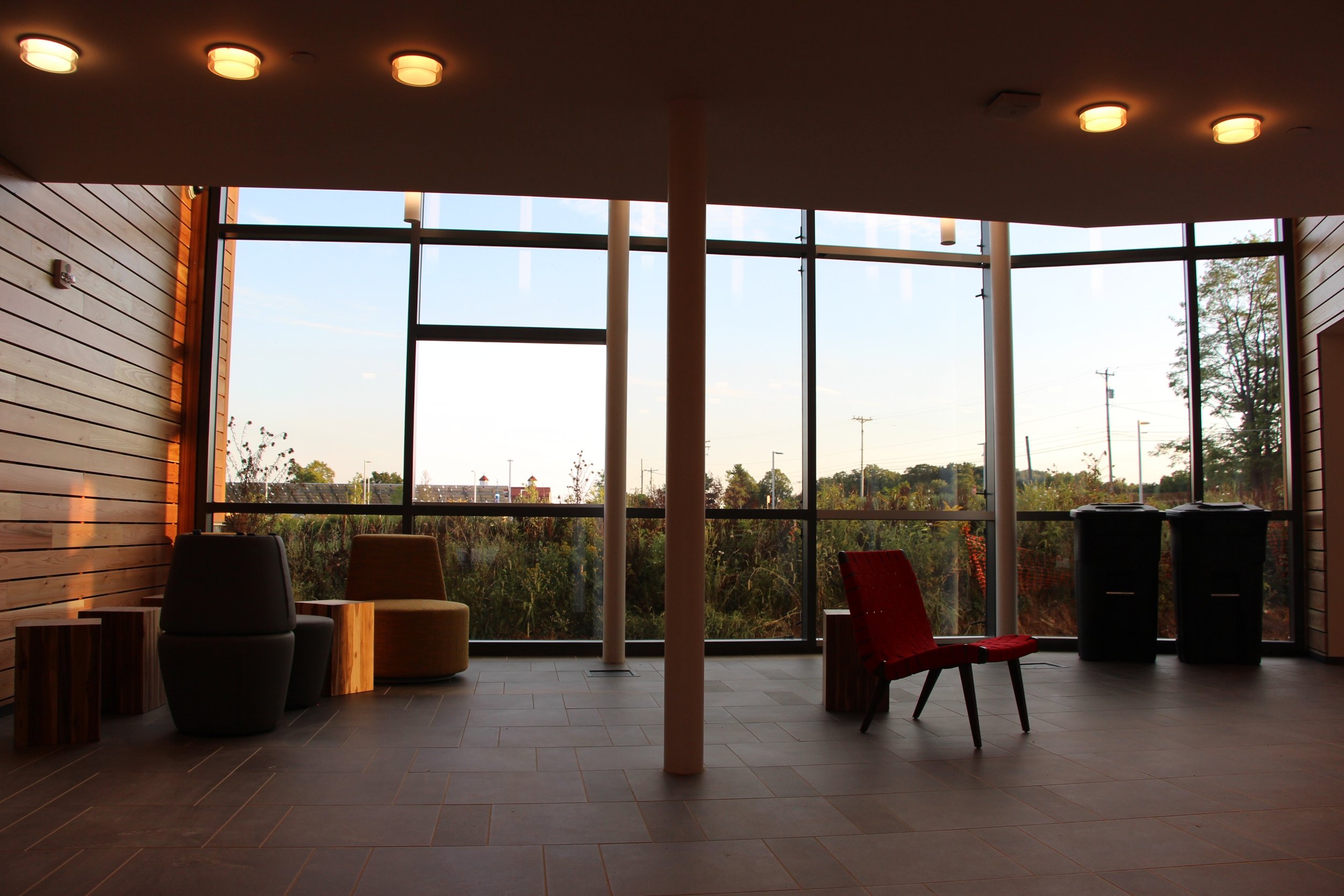
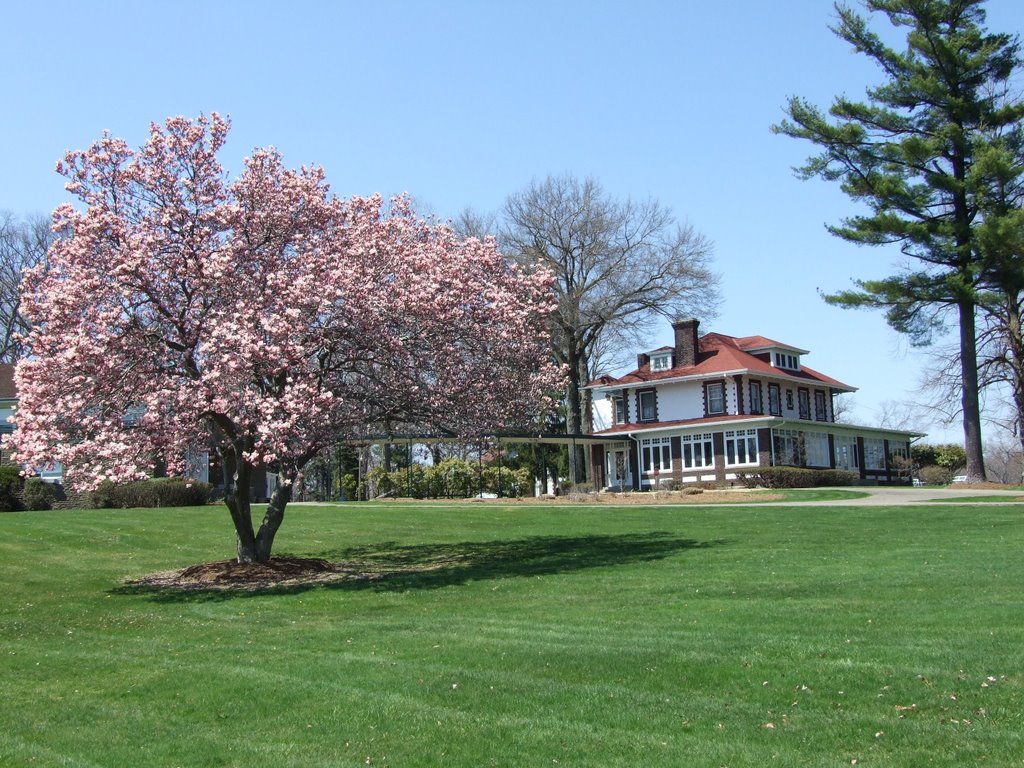
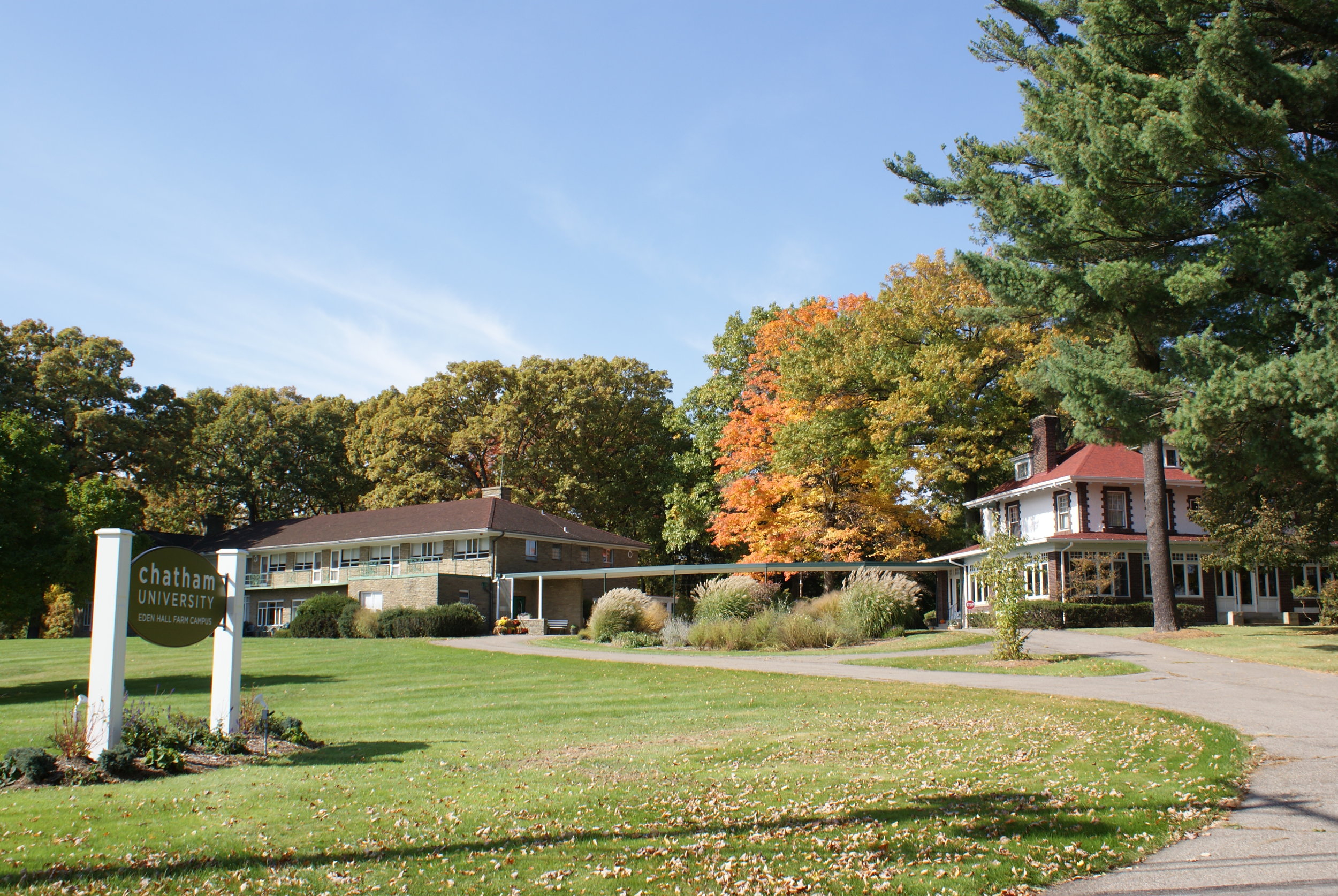

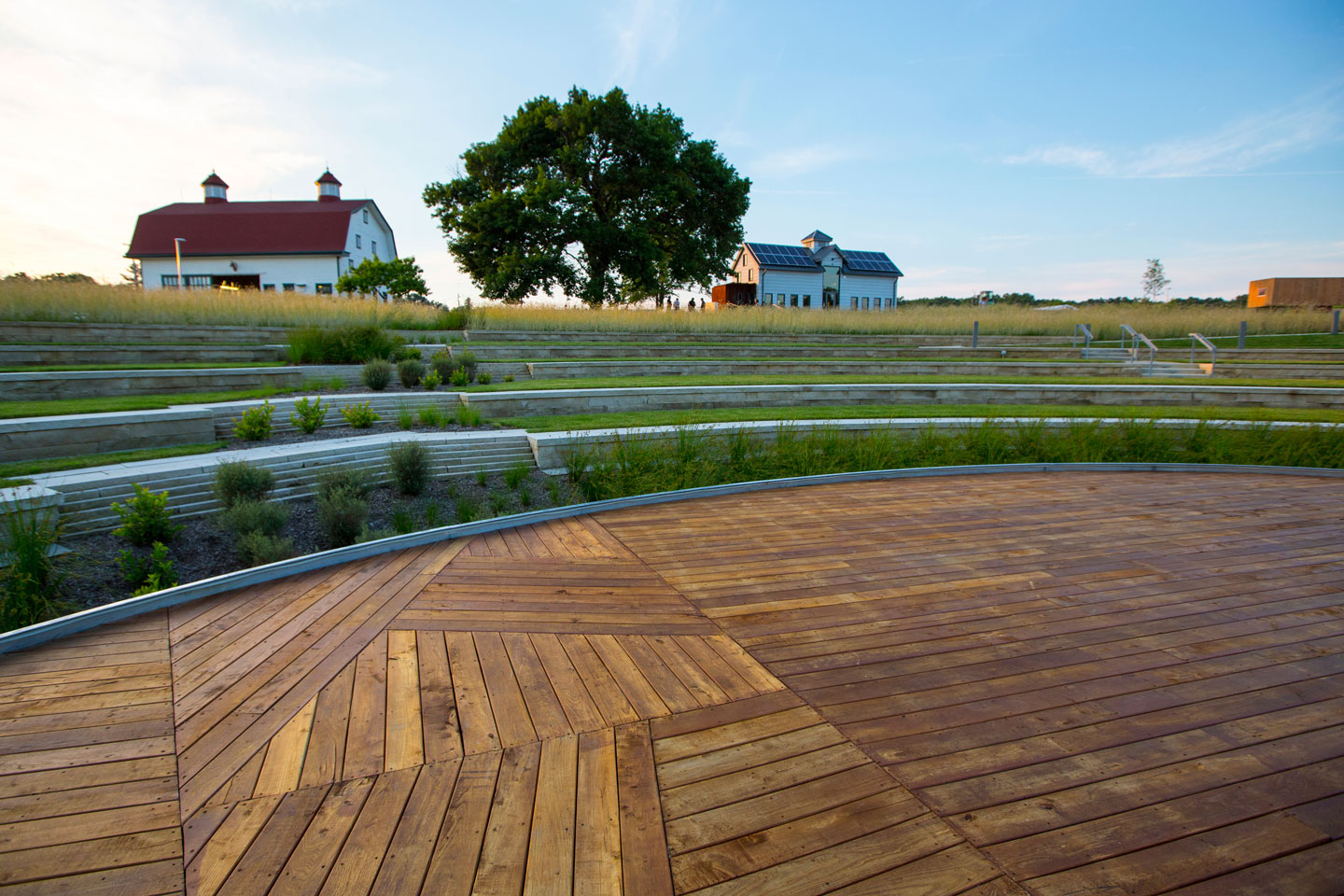
From the start, Eden Hall Campus endeavored to be a fully sustainable campus and community. As a result of what has been built, established, and developed across the campus in a number of sustainable areas, recognition has followed.
Eden Hall was developed within, around, and respectful of its natural setting, an achievement that has garnered industry acclaim in a number of areas.



Chatham University, as a whole, has been committed to advancing sustainability through education, operations, and innovation. And Eden Hall Campus has helped us take that to the next level. Our practices and the campus have garnered international recognition for advances in sustainability.







Scientist. Author. Environmentalist. Pioneer. Student. Pennsylvania College for Women (now Chatham University) graduate Rachel Carson '29 rose to prominence with her book, Silent Spring, as a trailblazing voice questioning the resulting impact of pesticides on people, animals, and the environment. This call to attention was a catalyst for the environmental movement that has helped bring awareness and action to the ecological problems our planet faces. Her inspiration guided Chatham to the creation of Eden Hall Campus, and her work has also served as a catalyst for our and the Falk School of Sustainability & Environment's commitment to advancing sustainability education, implementation, and research. Carson's big thinking and devotion to improve the world are just two of the qualities we work to bring to life through our students.





Sebastian Mueller (1860-1938) was a man of unquestionable energy and dedication. He came to Pittsburgh from his native Germany in 1884, at the age of 24, to work for his cousin Henry J. Heinz in his fledgling food processing operation. Mr. Mueller spent more than five decades working for "The House of Heinz" and while there won the respect and gratitude of not only the company's founder, but also its legion of working women. Having no heirs, Mr. Mueller willed his entire estate, including his summer home (now Eden Hall Campus) to benefit women by serving as a vacation and respite destination for working women of western Pennsylvania. In 2008, the Eden Hall Foundation donated the farm to Chatham University to expand its efforts in sustainability practice and education.




800-837-1290 • chathamadmissions@chatham.edu
412-365-1600
412-365-1268 • parkhurst@chatham.edu